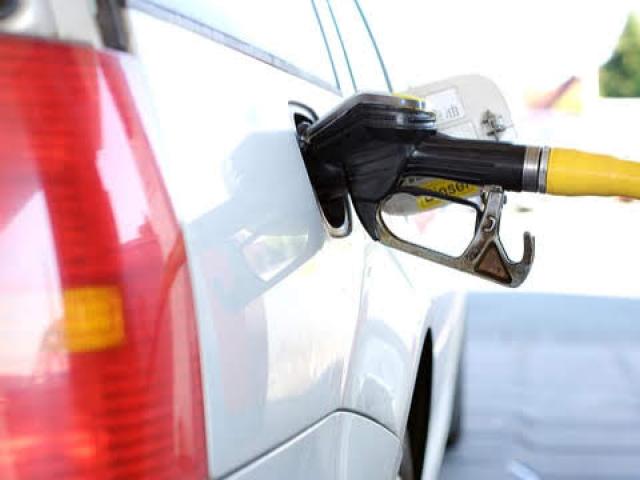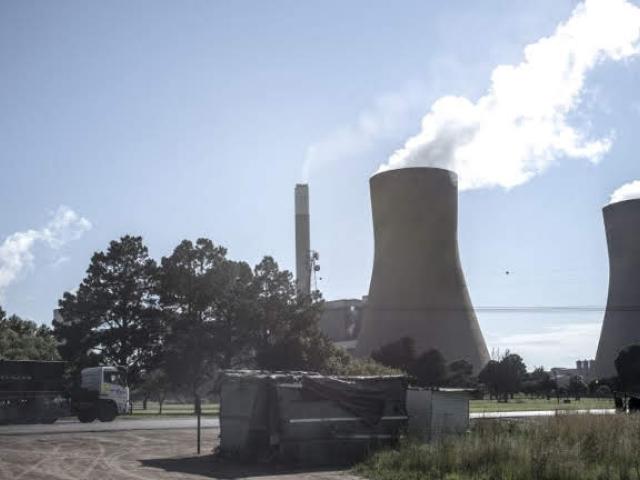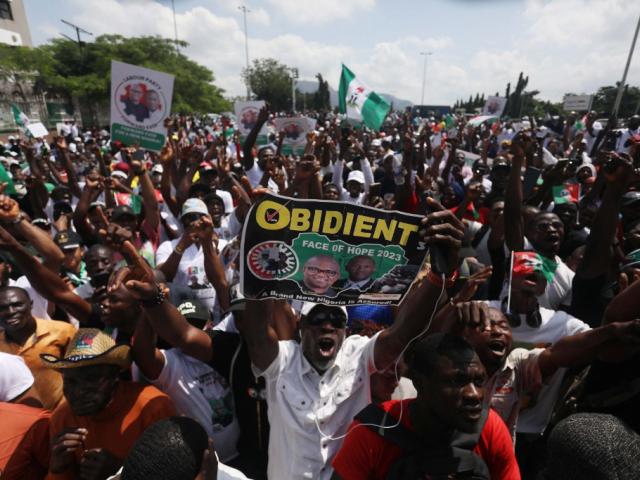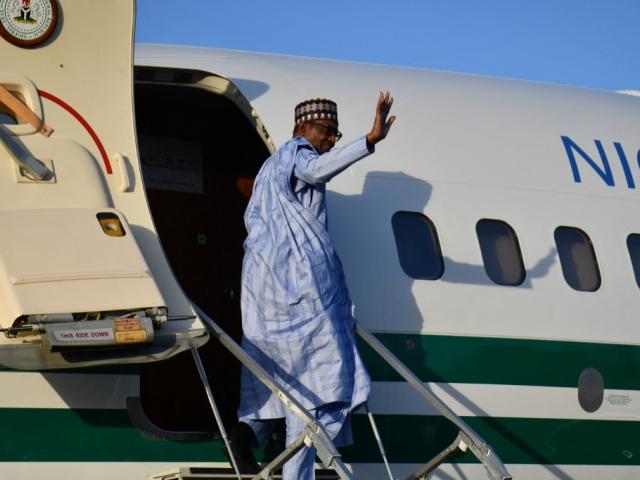-
Nigerians are set to vote for a new president on 25 February 2023 as the second and final term of current president Muhammadu Buhari comes to a close.
-
The Candidates, a series of live televised town hall meetings, allowed five presidential hopefuls to state their case and answer questions. Notably missing were leading candidates Atiku Abubakar and Bola Tinubu.
-
Africa Check and our partners in the Nigerian Fact-checkers Coalition fact-checked the candidates’ claims in real time, on social media. Here is a shorter and more contextual report on that work.
Campaigns are in full gear as Nigeria’s 2023 presidential election comes steadily into view.
The presidential election – and elections for the national assembly – is set for 25 February. And in a bid to win voters, the major presidential candidates and their deputies have been appearing on The Candidates, a series of town hall meetings aired on live TV.
The series began on 17 November with Adewole Adebayo, the Social Democratic Party candidate. Other candidates in the series are Omoyele Sowore of the African Action Congress, Rabiu Kwankwanso of the New Nigeria Peoples Party and Peter Obi of the Labour Party.
Atiku Abubakar of the Peoples Democratic Party skipped the town halls. He was replaced with Kola Abiola of the Peoples Redemption Party. Also notably absent was Bola Tinubu of the governing All Progressives Congress.
Each candidate had two hours to outline their plans and respond to questions from the moderator, Kadaria Ahmed. Questions were also taken from the audience in the studio and online.
We and the rest of the Nigerian Fact-checkers’ Coalition fact-checked each of the five sessions live and posted a summary of our findings on social media. This is a more contextual report of those findings.
To keep things shorter, we have left out some claims that were straightforward and correct. They include claims about Nigeria’s life expectancy and whether agriculture employs the most labour in the country.
Candidate: Adewole Adebayo, Social Democratic Party (SDP)
Adebayo argued that the administration of outgoing president Muhammadu Buhari had mismanaged the economy, including its vital crude oil and natural gas resources.
He claimed that as much as 80% of Nigeria’s crude oil was being stolen. The theft of the country’s main export has been widely reported.
But are as many as eight of every 10 barrels of oil produced in Nigeria stolen?
The Nigerian Upstream Petroleum Regulatory Commission regulates oil and gas production. As part of this, it tracks how much oil is produced.
In June 2022, agency chief executive Gbenga Komolafe was quoted saying that in the first three months of the year, oil theft had been estimated at a daily average of 120,000 barrels.
In that period, Nigeria’s central bank recorded production at more than 1.2 million barrels every day – an average of 1.4 million in January, 1.26 million in February and 1.24 million in March.
The estimated figure of 120,000 barrels is less than 10% of oil produced. Others have given higher estimates of up to 400,000 barrels a day, but this still does not translate to 80% of the country’s output. – Allwell Okpi
Adebayo said the Central Bank of Nigeria’s performance has been poor and included the mismanagement of monetary policy.
As a solution, he pledged to pick an economist – for “the first time in a long time” – as the bank’s governor.
Nigeria has had four central bank governors since its return to multiparty democracy in 1999. Two of them were economists, one appointed as recently as 2014.
- Joseph Sanusi, in office from 1999 to 2004, is an accountant. He studied accounting and has experience in capital markets and banking.
- Chukwuma Soludo, the governor from 2004 to 2009, is a professor of economics. He trained at institutions such the Brookings Institution in the US and the University of Cambridge in the UK.
- Soludo’s successor, Sanusi Lamido Sanusi, has a bachelor's degree in economics and taught economics at Ahmadu Bello University before going into banking. He was governor from 2009 to 2014.
- The current bank governor, Godwin Emefiele, has been in office since 2014. He studied banking and finance and taught finance and insurance at two Nigerian universities before beginning his banking career.
But is it important that the bank be led by an economist?
Yes, it is important for the governor of the central bank to be an economist, we were told by Ifuero Osamwonyi, a professor of finance at the University of Benin in southern Nigeria.
“The governor of CBN needs to be experienced in macroeconomic modelling. The person needs to be grounded in matters of monetary policy and the macroeconomics of the country and the world,” he said.
Macroeconomics is concerned with factors that affect the whole economy, such as unemployment, inflation and economic growth.
In Osamwonyi’s view, Soludo has been the most qualified of the bank’s governors so far, due to his work in macroeconomics before his time in office. – Allwell Okpi
Candidate: Omoyele Sowore, African Action Congress (AAC)
Sowore, an activist and media entrepreneur, is a well-known critic of the government.
He attributed Nigeria’s electricity challenge to a succession of governments. He then repeated a claim that has been making the rounds for more than a decade – that the Nigerian government has spent US$16 billion on electricity and still failed to solve the problem.
The claim is often made in reference to the spending of president Olusegun Obasanjo’s administration on what were known as the National Independent Power Projects during its term from 1999 to 2007. Obasanjo governed under the Peoples Democratic Party, which is hoping to succeed the APC.
But is the claim correct?
Despite being alluded to several times by APC leaders and Buhari officials, there are still no publicly available official records that support this.
A 2017 report by the Lagos-based nonprofit Socio-Economic Rights and Accountability Project found the Obasanjo administration spent $10 billion and not $16 billion on the power projects.
A year later Obasanjo shared the findings of a 2007 probe by the Economic and Financial Crimes Commission. This found far lower spending on the projects: about N1.23 trillion (US$9.64 billion). But only about N360.7 billion ($2.8 billion at the official exchange rate of N127.5 to $1 in May 2007) had been paid out when Obasanjo left office.
And the Power Holding Company of Nigeria (formerly the National Electric Power Authority), which oversaw the projects, received N273.65 billion from 1999 to 2007. That comes to $2.15 billion, using the average 2007 exchange rate. This still does not add up to the $16 billion claimed.
And in a more recent probe, in 2019, the anti-graft watchdog again did not find evidence of this level of spending. – Allwell Okpi
Sowore said Nigeria’s insecurity problem could not be solved without investments in social security or policies that aim to cushion individuals and households against possible hardships.
China had more guns than Nigeria but it resolved its security challenges by investing a lot in social security, he said.
A 2018 survey estimated that there were 6.2 million firearms in the hands of civilians in Nigeria, or 3.21 firearms per 100 people.
The research found civilians in China held 49.7 million firearms, or 3.58 firearms per 100 people.
The data shows that China has more guns, both in absolute numbers and per population, in the hands of civilians than Nigeria.
What about illegal firearms?
It is difficult to estimate how many illegal weapons are in the hands of Nigerian civilians, Sam Smah, a professor of criminology and criminal justice administration at the National Open University of Nigeria in Abuja, told Africa Check.
“The estimate I am working with is about 10 million illegal firearms in Nigeria. The majority of the illegal firearms circulating in West Africa are in Nigeria. I know that the United Nations Office on Drugs and Crime (UNODC), the United Nations Development Programme and a West African agency have done surveys on this,” he said.
Smah said conflicts in the Sahel and the “collapse of security” in some parts of northern Nigeria had led to high traffic in illegal weapons, which were almost impossible to track.
“Recently, I heard president Buhari say that some of the firearms from the war in Ukraine are being diverted to Nigeria.”
A 2021 presentation by UNODC says it is estimated that 70% of over 10 million illegal weapons in circulation in West Africa are in Nigeria. But it notes that there is little to no data to prove this.
– Allwell Okpi
The media have reported that president Buhari, first elected in 2015, tried to meet his campaign promise “to look at the presidential air fleet with a view to cutting down on waste”.
Two planes from the fleet were put up for sale in 2016. In September 2020 the presidency reportedly tried to sell another aircraft. But there is no evidence any of the sales have gone through.
The cost of maintaining the fleet has reportedly risen by over 120% in the past eight years. This does not mean new planes were added.
We found no evidence that the Buhari administration has added any new planes to the presidential fleet. – Allwell Okpi
Candidate: Rabiu Kwankwaso, New Nigeria Peoples Party (NNPP)
Rabiu Kwankwaso was governor of the northwestern Nigerian state of Kano from 1999 to 2003. He returned in 2011 for another term, which ended in 2015.
He has repeatedly claimed he did not borrow money to run his administration during both terms as governor. But available evidence does not support the claim.
The national media reported that Kwankwaso borrowed N4.1 billion from pension funds to build the Bandirawo, Amana and Kwankwasiya housing estates, a “mega city” project that he hoped to leave as a legacy.
Data from the country’s Debt Management Office (DMO) show that Kano state’s domestic debt, owed to Nigerian banks, increased by nearly N60 billion from 2011 to 2015.
Kwankwaso’s second term began on 29 May 2011. The DMO later published a report that showed Kano’s domestic debt was N5.87 billion at the end of December 2011.
By the end of December 2015, it had jumped to N65 billion. Kwankwaso left office on 29 May 2015. But since the DMO only publishes state-level data at the end of the year, we were not able to establish the exact debt at his departure.
Data from the agency does show that the state’s external debt, owed to other countries or multilateral organisations such as the World Bank, dropped slightly during the period.
External debt was $63.9 million on 30 June 2011. It dropped to $59.8 million on 30 June 2015. – Allwell Okpi
Kwankwaso was Kano governor from 1999 to 2003 and again from 2011 to 2015.
Data from the debt office shows the state owed $59.8 million to external creditors as of 30 June 2015 – a month after he left the office.
The office didn’t publish data for domestic debt in June 2015. But at the end of that year, Kano’s domestic debt was N65 billion.
Kwankwaso’s successor, Umar Ganduje, told journalists two days after he became governor that there was nothing wrong with Kwankwaso’s administration leaving the state with over N300 billion in debt.
We could not find independent data on Kano’s debt profile when Kwankwaso left office in 2003. Publicly available official data only goes back to 2006. – Allwell Okpi
Kwankwaso said that if he were elected, he would ensure the national budget for education would be more than what the country currently spends, as he had done when he was governor of Kano state.
He referred to a widely quoted “25% recommendation” for education funding he said was by the United Nations Educational, Scientific and Cultural Education (Unesco).
There is no evidence the UN agency has such a recommendation. In 2017, Nigeria’s education minister Adamu Adamu debunked a similar claim of a “26% Unesco recommendation”. He said Unesco officials had confirmed the agency has not recommended such a benchmark.
The only recommendation we found is that of a 2015 global education monitoring report commissioned by Unesco.
The report proposed that governments should spend 4% to 6% of their gross national product, or 15% to 20% of their national budget, on education. But Unesco said it did not represent its opinion.
Kwankwaso set aside less than 25% of Kano’s budget for education
Budget data on the Kano state website dates back only to 2016. But we found other documents online that show how much was budgeted for education in Kano under Kwankwaso’s administration.
In his 2012 budget speech to the state assembly, Kwankwaso proposed a total budget of N210.38 billion.
“Mr Speaker, we are determined to address the apparent collapse of the education sector. We thus plan to spend a total of N35 billion on education,” he was quoted as saying.
The N35 billion was 16.6% of the total budget. N221.62 billion was eventually approved, with education getting a total of N35.5 billion, or 15.9%.
The 2015 budget, the last of Kwankwaso’s Kano governorship, allocated N29.55 billion to the education ministry and N18.83 billion to the higher education ministry. That meant the total education budget was N48.38 billion.
The N48.38 billion amounted to 23% of Kano’s total budget of N210 billion in 2015. – Allwell Okpi
Candidate: Peter Obi, Labour Party
Responding to a question on how he would reduce the budget deficit if elected, Peter Obi gave the country’s 2021 budget as N21 trillion, with a N11 trillion shortfall.
Obi is running on the Labour Party ticket.
A deficit is the difference between what a government earns and what it spends.
Budget office documents show N13.6 trillion was budgeted for the 2021 budget, and not N21 trillion. The budget deficit for that year was also lower, at N5.6 trillion.
Obi’s claim about a N11 trillion deficit would have been correct if he was referring to the 2023 budget. – Motunrayo Joel
Expressing his position on the country’s several different exchange rates, Obi said the naira's weakness against other currencies should be tackled.
He linked this fragility to the country’s low reserves. He then compared Nigeria’s earnings from its exports to those of the Middle Eastern country of Israel.
He claimed that Israel’s exports in 2021 were worth $59.8 billion.
According to the World Bank, Israel’s export earnings in 2021 were far more, at $143 billion. Nigeria’s earnings from export in 2019, the year for which the bank last has data, was $63.73 billion.
Israel's exports include precious metals and stones, electrical and mechanical machinery, as well as appliances and chemicals.
Obi also gave the value of the Southeast Asian country of Vietnam’s exports as being over $350 billion, even though the country has only a fraction of Nigeria’s population. Official data shows the country exported $336.31 billion in 2021.
Obi’s overall argument about Nigeria’s need to strengthen exports was made, but he used incorrect figures.
Nigeria exports mainly raw materials
Nigeria’s industries were weak and on their deathbeds, Abayomi Adebayo, a professor of labour and development economics at the Obafemi Awolowo University in the southwestern Nigerian state of Osun, told Africa Check.
Adebayo said Nigeria mainly exported raw materials, and earnings from these tended to be lower.
“We should work on how to process what we export to earn more. Refine crude oil for internal use and export to other countries. We must also begin to produce things internally. We are weak in the production of anything. This must change.” – Motunrayo Joel
The Nigerian Electricity Regulatory Commission by law regulates the country’s electricity supply.
According to the commission, Nigeria had a total installed capacity of 10,396 megawatts (MW) in 2017, with available capacity being 6,056 MW.
Installed capacity is the maximum theoretical electricity output when power generation operates at 100%. Effective capacity, on the other hand, is the expected output when operating constraints are factored in.
In 2018 installed capacity was 12,522MW. In 2022, vice president Yemi Osinbajo said the country’s installed capacity was more than 18,000 MW. We have asked the commission for official data. Without their response, we can for the time being only rate the claim as unproven. – Motunrayo Joel
Obi did not give a timeframe for when oil was 50% of the Nigerian government’s revenue.
The most recent data on this is from the central bank data, for the second quarter of 2022 – the months of April, May and June.
This shows that non-oil income accounted for 59.5% of revenue, while revenue from oil was 40.5%, a pattern carried over from the previous quarter. – Motunrayo Joel
Obi added that oil accounts for 80% of the country’s foreign exchange revenue.
Foreign exchange reserves are assets held by a monetary authority in foreign currency. They include banknotes, deposits, bonds, treasury bills and other foreign government securities.
According to National Bureau of Statistics data, crude oil accounted for 78.51% of the country’s total exports in the third quarter – July, August and September – of 2022.
‘We need to boost our reserves’
The pressure on reserves is enormous, with more going out than coming in. That’s what Dr Muda Yusuf, the former director general of the Lagos Chamber of Commerce and Industry, told Africa Check.
He gave “demand side” examples of how Nigeria could boost its reserves. They include reducing the import of petroleum products, reviewing the country’s industrialisation strategy to make it less dependent on raw material imports, and securing and developing agriculture to cut food imports.
On the “supply side”, Yusuf highlighted the challenge of oil theft, which meant the country was not meeting its targets.
The country’s foreign exchange policy should also “be market driven to improve foreign exchange liquidity in the economy”, he said. He added that Nigeria should grow its non-oil exports to add to increased forex inflows. – Motunrayo Joel
Obi claimed that Britain has an unwritten constitution.
Is this true? Robert Blackburn, a professor of constitutional law at King’s College London, explains this in a 2015 article for the country’s national library. It’s titled: “Britain's unwritten constitution”.
“From a comparative perspective, we have what is known as an ‘unwritten constitution’, although some prefer to describe it as ‘uncodified’ on the basis that many of our laws of a constitutional nature are in fact written down in Acts of Parliament or law reports of court judgments,” the article reads.
A codified constitution is written down clearly in a specific document, called “the constitution” of a country.
“This aspect of the British constitution, its unwritten nature, is its most distinguishing characteristic,” Blackburn writes. – Motunrayo Joel
Obi was governor of the southeastern state of Anambra over three stints spanning 2006 to 2014.
He claimed that when he left office, the share of poor people in Anambra was a low 11.2%.
We traced this data to a 2017 paper on poverty by the University of Oxford in the UK. This used several indicators to work out what is known as the multidimensional poverty index.
The index reflects the share of possible deprivations that poor people experience. It gives the results as a range, with zero being no poverty and one the highest deprivation.
In addition to a national figure, the research found that the share of poor people in Lagos state, the economic hub, was 8.5%, followed by Osun (10.9%) and then Anambra (11.2%).
What does more recent data suggest?
The 2022 Nigeria Multidimensional Poverty Index survey from Nigeria’s national statistics office has a more recent estimate.
According to the survey, 133 million Nigerians are multidimensionally poor, with the states of Sokoto, Bayelsa, Gombe, Jigawa and Plateau the poorest.
Sokoto leads with 90.5% followed by Bayelsa (88.5%), Gombe (86.2%), Jigawa (84.3%), and Plateau (84%). The least poor states are Ondo (27.2%), Lagos (29.4%), Abia (29.8%), Edo (31%), and Anambra (32.1%). – Motunrayo Joel
Candidate: Kola Abiola, Peoples Redemption Party (PRP)
The most recent economic data from the Nigeria statistics bureau that differentiates between the formal and informal sectors is from 2015. It gives the share of the informal sector as 41.43%.
In 2017, the International Monetary Fund estimated that the informal sector contributed as much as 65% to Nigeria’s gross domestic product (GDP) - a commonly used measure of an economy’s size.
A 2021 World Bank database used two methods to estimate Nigeria’s informal economy as between 48.2% and 56.2% of the official 2018 GDP.
Developing economies ‘have bigger informal economies’
It was normal for developing economies like Nigeria to have a large informal sector, Oluranti Olurinola, a professor of economics at Covenant University, Ota in southwest Nigeria, told Africa Check.
“The size of the informal sector is usually inversely proportional to development. So, you see that it is developing and emerging nations that have the largest informal sectors,” Olurinola said.
More developed countries, like the OECD countries, have small informal economies because a lot of things are well-structured.”
The Organisation for Economic Cooperation and Development or OECD is an economic grouping of 38 mainly European countries. – Allwell Okpi
Employment in the informal sector may be even more than 84%, Olunrinola said.
“Different studies in different parts of the country show that over 80% of employment is in the informal sector. I recently reviewed one of such studies done by the Nigeria Institute of Social and Economic Research. I am aware it will be published soon,” he said.
In 2021, the World Bank published a paper titled “The Long Shadow of Informality: Challenges and Policies”. It found that 80.4 % of employment in Nigeria is in the informal sector.
Neither the National Bureau of Statistics nor the federal ministry of labour and employment has data on employment in the informal sector. Based on what data is available we rate this claim as mostly correct. – Allwell Okpi








Add new comment